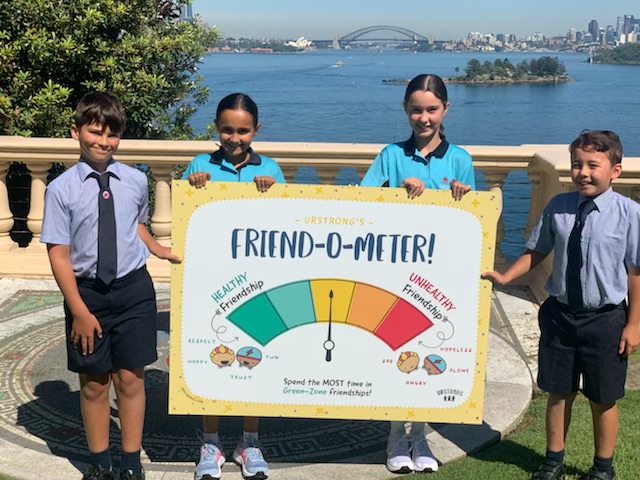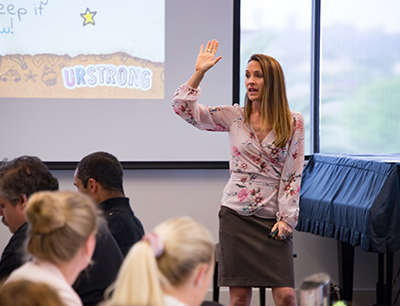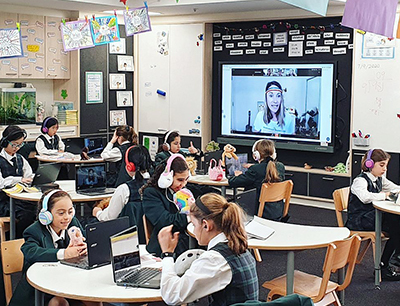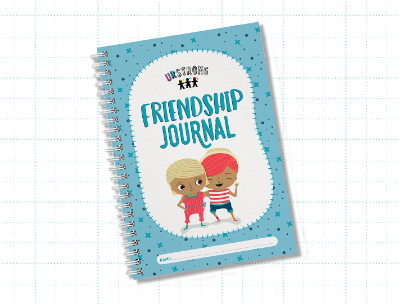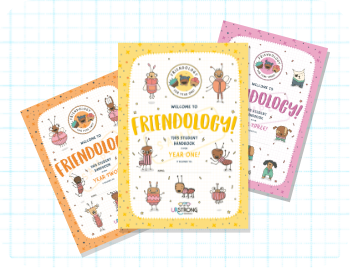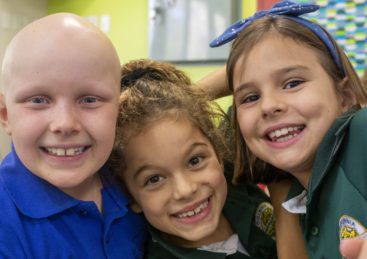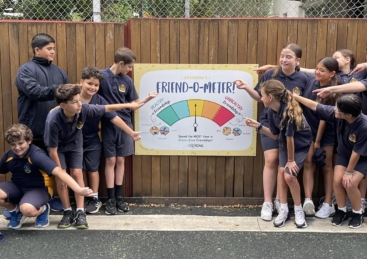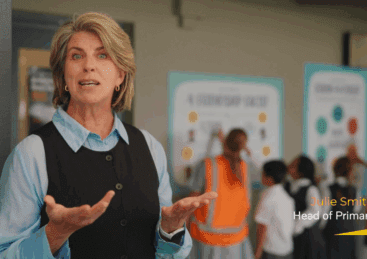Let’s start with this: You love your child. That love you feel for your child is raw and visceral – that kick-in-the-stomach kind of love. And, because of that, nothing hurts more than to see your child in pain. With physical pain, you pull-out the first-aid kit, the homemade chicken noodle soup, or your favorite little boo-boo buddy! With emotional pain, you give your child a hug, you try to console them, and you wipe away their tears. But, the second you find out the pain came from another child, that sweet, warm mother hen morphs into Mama Bear! What once was warmth and compassion is now anger.
“Wait…what? What did Riley do to you? Riley did WHAT? What did the teacher do? Riley didn’t get in trouble? Is Riley like this to all the kids in your class? What else has Riley been doing?”
One of the most surprising omissions that we hear from parents (usually moms!) is that their response to this intense, protective, emotionally-charged feeling is to confront the other child’s parent by either calling, texting, or approaching them in the parking lot at school. While we get and understand why you’re upset…
Here are the Top 10 Reasons
You Should NOT Confront the Other Child’s Parents:
1. Your child doesn’t want you to. This has emerged as the #1 reason why children do not open up to their parents about issues with friends – they’re worried you’re going to make it worse and it almost always does! Involving the other child’s parent is humiliating, embarrassing, and erodes trust. Believe me…this is the last thing they want you to do and risks your child shutting you out.
2. You can’t view the situation or your child objectively. No matter how hard you try to see things from all perspectives, you will naturally have a bias towards your own child. You not only love your child, you also have a very large sample size of their behavior (i.e. their entire life) to draw conclusions. You know them inside-out and you are very familiar with who they are, albeit you see these things through rose-colored glasses. You will naturally not see the other child in the same light. And, unless you are a teacher or you work with children their age, it is very hard to have an accurate, fair take on what’s ‘normal’ behavior for children. If you do feel there is a situation that requires adult-intervention, see if there is a teacher or Guidance Counsellor who can work with both parties as an objective mediator.
3. Your Mama Bear instinct kicks in and, let’s face it, she tends to over-react. This is totally out of your control. When we picture anything negative happening to our child, we immediately experience an innate, sometimes even physical reaction. When we hear a tragic news story on TV and imagine it’s our child, tears or those gut-wrenching feelings are immanent. These powerful emotions are animal-instincts designed to protect, not to have delicate conversations about our daughter or son’s Friendship Fires® at the local café.
4. Get off the rollercoaster. You should not ride anybody else’s rollercoaster, but your own. You’ve been there, done that, and you don’t need to re-live playground politics. You can cheer your child on (Think of yourself as a Friendship Coach!) and offer support, but don’t ride the rollercoasterwith them…and we all know you don’t have the ‘stomach for it’ like you used to!
5. Your perspective is different than your child’s. What’s huge to you might be small for them or vice-versa. As an adult, you are lucky to have the Grand Scheme of Things and, because of that, you have one of life’s greatest gifts: Perspective. A child has not developed this yet and is figuring things out. They’ll get there, but don’t project your perspective onto them. They might have situations that are water off a duck’s back to them (while you’re still steaming!) and situations that seem bigger than they should be. It’s their reality, not yours.
6. Rescuing them isn’t helping. Empower them to put out Friendship Fires® on their own. Getting over-involved to swoop in and save the day is right in line with today’s “Helicopter Parenting” phenomenon. Solving our children’s problems for them does more damage than good and robs them of the chance to learn these critical conflict-resolution skills. Use these opportunities as Teachable Moments to empower, equip, and train your children to stand up for themselves. These Teachable Moments are golden…take advantage of these real-life learning situations.
7. It often makes the situation worse and rarely ends well. Not only will your children resent that you discussed their personal issues, it often makes matters worse for them at school. Telling your parents about a Friendship Fire® is not considered a ‘cool thing to do’ (we’re doing our best to change that!) and word travels fast. Plus, 9 times out of 10, the conversation with the other parent will not go well…there are too many factors working against you to have a productive, harmonious conversation.
8. It makes things unnecessarily awkward between you and that parent. In the 1/10 times where the conversation seems to go relatively well, even if both parents are well-meaning, it is often the beginning of the end. Your relationship with that parent will naturally feel awkward and one or both of you will come away feeling defensive (it’s instinctive). There will be a hypersensitivity that develops and the next time you see or hear of THEIR child doing something, it will bug you…even if it’s a little bit. It just will.
9. Relax… Give it some time. The truth of the matter is, your child could be “Besties” with this other child tomorrow. Kids get over their friendship issues quickly – they don’t cut as deep – which is a good thing! Just be patient. Don’t worry, your child will not grow up to be a push-over with no friends, as long as you’re coaching them along the way. Interpersonal skills develop over time and, like everything, they need to practice.
10. Your child’s got this! Don’t deny your child this amazing opportunity to learn and grow. It’s in our struggles that we strengthen, so give them this chance to dig deep. Use this platform called friendship to allow your child to learn valuable life lessons. Ask them, “What can YOU do to get the friendship back in the green-zone on the Friend-o-Meter?” Continue to bring the focus back to your child, empowering them with skills, reminding them that they can do it…because they can!
As parents, we need to remember this quote: “We don’t see things as they are, we see them as we are.” Conflict-resolution, interpersonal skills, empathy, and resiliency don’t just happen…they are formed through personal experience. These qualities are critical in developing healthy relationships. Success in life, no matter how you define it, relies on the ability to form and maintain healthy, feel-good relationships. And we need to give our kids a chance to develop these skills on their own.
Trust me, your child has got this!
Written by Dana Kerford
Friendship Expert and Founder of URSTRONG

